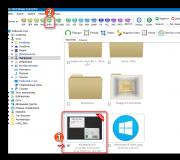Browsers for older processors. Browser for weak computers
At work I have a weak, outdated computer with 512 meters of RAM and Windows XP.
The eternal problem is that it slows down and freezes, especially at the end of the day.
I clean Windows with all sorts of cleaners, utilities, optimizers, but I don’t get any noticeable effect.
There is an eternal problem with browsers - they load the system, eating up the already frail RAM. My beloved Opera is finally disappointing. She became like Firefox - fat and clumsy. Google Chrome, which is praised so much as the fastest and clearest, is not fast and clear on my computer, for some reason it loads the system and the flash player in it is always glitchy. It finally has a wonderful feature: it updates itself in the background without asking. And this cannot be turned off anywhere. Suddenly the computer starts to slow down terribly, I go to the task manager - and this dear Chrome has decided to update and is loading the CPU by 80%.
Chrome, Opera, Firefox, Yandex browser are not suitable for weak computers. A special horror begins when entering heavy sites like slando or ria.ua - a bunch of loading interface elements, the browser slows down and drags the entire computer along with it.
I would like to say about the Opera that it is like the Dynamo football club (Kyiv). He has been loved by everyone for a long time, but has fallen behind in development and has become heavy and weakly developing, glitchy in modern conditions, but still having an old crowd of loyal fans who suffer, but use it and are all waiting and waiting for him to become the best and most competitive again. A huge plus of Opera is its awesome customizability. Lots of settings, you can customize the browser to suit you and your needs. Chrome settings - the cat cried.
I looked through a lot of information on the internet, read a lot of opinions and reviews. I was looking for a EASY browser that would consume less resources on a weak computer. I installed several little-known browsers that position themselves as “light and fast.” For example, Browsar Winstyle. Yes, they are light and fast. But they're not convenient and don't work well. So that's not an option either.
In the end I settled on Comodo Dragon. Externally and internally it is similar to Chrome, because it is made on the open source Chromium engine. Calls itself "a faster, more secure version of Chrome."
And guess what? Yes, yes! I achieved what I wanted - the browser works quickly on my weak computer. Really fast compared to others, loads pages and all content correctly. I don’t know how it works in Windows 7, but in XP it’s great. Heavy modern sites load significantly faster than in other well-known browsers.
For those who have a weak computer and Windows XP, I highly recommend the Comodo Dragon browser
Since the emergence of the World Wide Web, called the Internet, surfing tools have begun to develop at a breakneck pace. Web browsers are used as the main tool. But not all of them are equal in their capabilities and the load they can put on the system. Let's try to figure out which browser loads the system the least, taking into account the main technical characteristics and reviews of ordinary users.
What is the load on the system?
To understand the meaning of the load, you should directly examine the currently loading content contained on a specific web resource. It is clear that if the site is a resource that presents exclusively text, there is nothing to talk about. The system reads text in any encoding and doesn’t really strain itself.
The question of which browser loads the system the least should be considered from the point of view of multimedia content or development tools provided by the browsers themselves.
If we talk about multimedia, it’s immediately worth considering that the processing tools provided in the main versions of programs are often supplemented by a fairly large number of special plug-ins. Take, for example, the same Adobe Flash Player, which is responsible for high-quality reproduction of animation, graphics and sound.

Thus, the relevant question will be not so much about which browser consumes the least resources, but about how resource-intensive the additional plugin is, because the browser itself in its pure form may not work with some elements of web pages.
Basic performance parameters
If we consider the main characteristics of the most famous and most often used tools, the first thing for any user or expert tester is the speed of launching the program itself from an executable file and the speed of opening pages.

Unfortunately, many users who are trying to figure out which browser uses less CPU or RAM, often ignore the application startup options. So to speak, in their pure form after installation, they all start quite quickly. This is only due to the fact that they do not have plugins connected, the cache is not full, there is no browsing history, etc.
Over time, any, even the most sophisticated browser with a bunch of bells and whistles turns into a clumsy hulk. The saddest thing is that even deleting temporary files does not help. And if you also take into account the initialization of plug-ins at program startup, in general, it’s worth thinking about the advisability of installing them.
Some applications have their own set that cannot be deleted, but can be disabled. For example, Chrome comes with built-in components like Adobe Flash Player or AdBlock. If everything is clear with the first plugin, the second sometimes causes legitimate complaints. It is responsible for blocking ads, pop-ups and banners, and can also prevent some auto-executing scripts and applets embedded in web pages from running. And all this takes a lot of time.
Opening pages with preliminary content analysis directly depends on the content. Any modern browser takes a fraction of a second to do this. Again, it all depends on the plugins - the more there are, the slower the program runs. And incorrectly installed or incompatible add-ons slow down the system even more.
Which browsers use less memory?
But let’s start checking the means of Internet access themselves. Here you should take into account the consumption of RAM, virtual and physical memory. If you understand the question of which browser loads the system the least, you should pay attention to the basic default settings and the size of the allocated cache.
Cached data, although it allows you to open the most frequently visited pages by storing some elements on the hard drive, is nevertheless capable of clogging up the system too much and causing programs to freeze. This is due to the constant analysis of loaded structural elements of pages. If there is a sufficiently large number of them, more time is required for analysis and loading.
In this regard, the best performance, judging by user and expert reviews, is shown by Internet Explorer 11, Edge from Windows 10, Mozilla and Google Chrome. Opera, although a very popular means of accessing the Internet, is much slower. In addition, today you can find so many versions of the program in unofficial sources that you don’t always know whether a given product is safe.
and reviews
If you look at it, you can make a list, which, as you would expect, contains only programs from the most famous developers:
- Internet Explorer;
- Edge;
- Opera;
- Mozilla Firefox;
- Chrome.
It would be possible to add here some programs like Amigo, Yandex Browser, 360 Safety Browser or something else. But they are specifically not included in the list, since they are built on the basis of Chrome and are not of interest as truncated or expanded derivatives of the main product. Often, due to unfinished technologies and algorithms, many more problems arise in them than in the parent product. This is evidenced by clearly unflattering statements from users.
Now let’s look at the question of which browser loads the system the least in a little more detail.
Internet Explorer
Users have an extremely negative attitude towards IE, which is part of any Windows operating system, since early versions of the program were so unfinished that it was not even possible to talk about any ease of working on the Internet.

Over time, Microsoft developers revised the basic concept of the browser, resulting in the 11th version of the application. No matter what anyone says, Internet Explorer 11 in all respects surpasses Mozilla, Chrome, and even more so Opera. The load is minimal, startup is much faster than similar applications, clearing the cache and temporary files does not require user intervention, as it was before (you had to clean the Temporary Files folders manually).
Edge
The same Internet Explorer became the progenitor of a new generation browser called Edge, which appeared only in Windows 10 (a version is not provided for systems of a lower rank).

This application rightfully occupies the top positions in all ratings. Most of the background processes when starting the program are automated, the start takes place within a couple of seconds, opening pages even without installing the accompanying plugins is very fast. By the way, you don’t need to install add-ons - everything comes included here.
Another thing is that this browser is somewhat inconvenient to configure, especially in terms of disabling extensions. And the default start page (news, weather, advertising, etc.) is a little annoying. But all this can be disabled if you set the dummy at startup, similar to how it is done in IE.
Opera
The notorious "Opera", although revered by many, has recently lost ground. Despite the convenient and fairly simple interface, performance leaves much to be desired.

Even at startup, you may notice that it takes too long to access the hard drive, as well as when completely clearing the cache and deleting temporary files. True, one of the advantages is the ability to quickly configure, disable or remove extensions. But this in no way can affect the overall rating.
Mozilla Firefox
The search for an answer to the question of which browser loads the system the least cannot do without this browser.

Light and fast - that's what you can say about it. However, not all users appreciate it fully. The fact is that “Fire Fox” cannot be considered as the most primitive means of accessing the Internet. This browser is more suitable for web developers and can be used as a complete platform for creating web applications. The tools here are much wider than what other favorites on the list offer.
Chrome and browsers based on it
Chrome is considered the fastest of all existing browsers. Developments based on it are fast only after the first installation, but over time they begin to slow down incredibly.

The speed of launch, the speed of opening pages, and the ease of setup or management are excellent. Plus - the largest number of developed plugins and extensions. The question is different. Is it worth installing them? This is something everyone decides for themselves. Nevertheless, in all the main indicators in the popularity lists, this browser is not inferior to Edge.
What to choose?
So, we choose. Of course, preference (based on user reviews) could be given to Microsoft products, however, it is believed that the best option would be to install Chrome.

And here the choice is supported not only by technical characteristics or performance parameters with minimal load on the system. If you look more broadly, you will notice that the latest version of the application supports RDP (remote desktop) technologies and can be used as the main client for connecting to computers and laptops, even from mobile devices.
Thus, the balance in the question of which browser loads the system the least, is the easiest to manage and configure, clearly tips in favor of Chrome, although this assessment is based solely on ratings, nothing more.
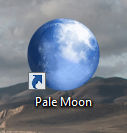 Hello everyone It seemed to me that I was well versed in hardware and software. Well, maybe it’s not that great, but it’s enough to advise you on how to solve this or that problem related to software or hardware. Well, that's it. But if six months ago someone asked me what the fastest browser in the world is, I would have answered Mozilla. And I would be right, because if you don’t delve into the topic of browsers, then it seems like Mozilla is the one that loads a website page the fastest.
Hello everyone It seemed to me that I was well versed in hardware and software. Well, maybe it’s not that great, but it’s enough to advise you on how to solve this or that problem related to software or hardware. Well, that's it. But if six months ago someone asked me what the fastest browser in the world is, I would have answered Mozilla. And I would be right, because if you don’t delve into the topic of browsers, then it seems like Mozilla is the one that loads a website page the fastest.
But I was wrong... And it all happened when I bought a board with a soldered Atom 330 processor on the cheap - small and remote. It has two cores, but there is Hyper-threading technology, that is, there are threads, resulting in 4 threads, and in Windows this is shown as 4 cores. Well, I thought, this is great, but I was a little upset when I realized that the performance was certainly not enough. Well, what should you expect from a mobile processor?
Well, that's it. I started thinking about how I could make the pages load faster in the browser. And then I installed Mozilla, but alas, it was too heavy for the Atom processor. Well then I installed Chrome. And fortunately there was enough memory (4 gigs), then Chrome worked somehow. I loaded even heavy sites, even if I had to wait a little. But I thought again, is it possible to find some kind of browser that will be like a rocket. And you won't believe it, I found it, it's called Pale Moon!
Pale Moon is a browser developed on the basis of Mozilla, which is somehow very cleverly optimized for both conventional processors and Atoms. I installed it and I was shocked - many pages actually loaded much faster, the interface is nice, it doesn’t load anything and it eats up a little RAM.
There is a version for both 32-bit Windows and 64. Both XP and Windows 10 are supported. You can download from the official website, or write in the Pale Moon search engine and the official website should be in the first position:

There you download the version for your Windows. It installs without any glitches, during installation it is not suggested to install either Yandex software or Mail software, this is already good
When you first launch it, you will be prompted to import settings from some other browser:

The last point here is to give up imports.
Also during installation you will be asked to leave the Pale Moon home page or import it from the Internet Explorer browser:

Well, that’s it, then the browser will install and you can try what kind of Pale Moon browser it is. It seems to be translated as Pale Moon.. But I could be wrong
So, after launching the browser, you will have an unpleasant jamb. Well, maybe it doesn’t matter to some, but there is no Russian language in the browser. But don’t worry, I’ll show you how to implement it there!
This is what Pale Moon looks like:

As you can see, in a word, it looks good and comfortable
Let me tell you right away that all these unnecessary buttons, the search bar (well, the one on the side of the address bar), all these bookmarks - all this can be removed and you can customize the browser for yourself.
Now about the Russian language. Let's go to this site:
palemoon.org/langpacks.shtml
Then down there we look for something like ru.xpi - this is the Russian language for the browser, look, here it is:

Click on ru.xpi and there will be a window like this, then click Install Now:

Then you should see the following message, saying that the language is installed normally and there are no jambs:

Almost everything, now all that remains is to activate the Russian language. See how to do it, first go to this address:
In the next message, click the I promise to be careful button:

Now look what you are doing, paste this:
general.useragent.locale
In the Search field and press enter:

There you should see the line general.useragent.locale, this line is a parameter that specifies the browser language. Here it now says en-US, but we need to change it to Russian! To do this, double-click on this line, the following window will appear:

And here you change en-US to ru-RU so that it becomes like this:

Click OK in this window and that’s it, now you can press F5 for the test, if it says that there are dragons here, then you did everything correctly:
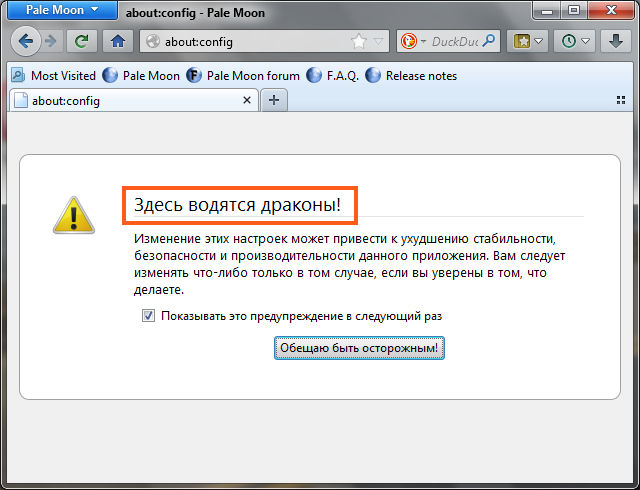
Now, for the browser to be completely in Russian, you need to close it and start it, that is, restart it
Well, that’s it, so I opened the menu and everything is in Russian:

So there is nothing complicated here. Well, without leaving the checkout, I will also show you how to install a Russian spelling dictionary in Pale Moon!
To be honest, I either don’t remember or there is simply no setting where you can add a dictionary. Therefore, I propose to do this: open any page where there is a text field, for example, I opened the Yandex search engine. And right-click on the text field and check the Spell Check box:

After that, right-click again and there will already be a Languages menu, and inside it the Add dictionaries item:

Then a tab will open, by the way Mozilla, and there you need to find Russian and click on Install dictionary. I immediately advise you to hold down Ctrl + F and enter Russian into the search, so you will find it faster:

I advise you to install the larger dictionary. Well, there are probably more words, which means a better check, well, in general, I chose the one with more...
Then you will need to click on Add to Firefox:
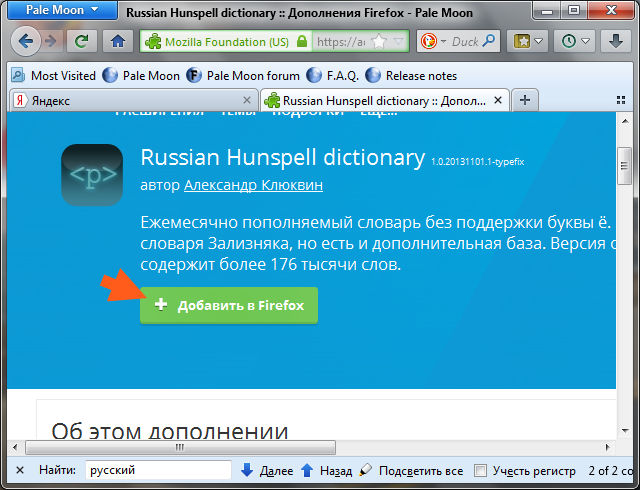

And then there will be a message saying there are no jambs, everything is installed fine:

After this, you will need to check the Spell Check box again, and then Russian will be selected automatically:

Well, you see how it all turned out. I wanted to tell you about Pale Moon, but in the end I told you how to put the Russian language into it and how to add a Russian dictionary for spell checking. Well, how could it be otherwise, this is the first thing you need to do to make the browser more or less comfortable to use.
By the way, here is the settings window (you can get to it by clicking on the Pale Moon menu button in the upper left corner and selecting the item there):
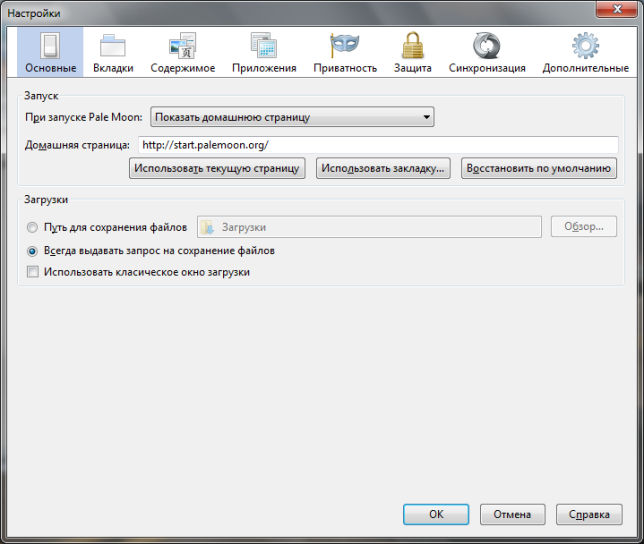
That is, you see it as if it were Mozilla, but not quite modern. That's right. Pale Moon is not made on the latest version, but, so to speak, on the one that is still modern. In general, it supports everything, YouTube and all sites, flash and video, in general, everything works there. It’s just that the version of Mozilla, as a base, is not the most recent, but simply fresh.
I don’t know whether you will like this browser or not, but in general I don’t see any strong reasons why you might NOT like it. Here are the advantages I see in it:

Well, it looks like I wrote everything I had to! I strongly advise you to try this browser and understand that I’m not making it up, it’s really very fast and even somewhat reminiscent of Opera 12. And this, well, I’ve never seen such a browser, for me, this is the best that can be from browsers Today.
Good day, friends! Sorry that there have been no updates on the blog for a long time, I promise to improve and delight you with articles more often. Today I have prepared for you ranking of the best browsers of 2018 for Windows 10. I use this operating system, so I will focus on it, but there will not be much difference for users of previous versions of Windows.
On the eve of last year I did. Now the situation has changed a little, which I will tell you about in this article. I will be glad to see your comments and remarks. Let's go!
Best browsers 2018: ranking for Windows
I don't think it will come as a surprise to anyone if I say that more than 90% of the population uses the Windows operating system on their computers. The most popular version remains, which is understandable due to the huge list of advantages (but more on that in another article). I literally switched to it a couple of months ago and therefore this article will be especially relevant for Tens users.
1st place - Google Chrome
Google Chrome is once again the leader among browsers. It is quite powerful and efficient, just ideal for owners of modern computers. According to open LiveInternet statistics, you can see that almost 56% of users prefer Chrome. And the number of his fans is growing every month:

Share of Google Chrome usage among users
I don't know what you think, but I think almost 108 million visitors can't be wrong! Now let’s look at the advantages of Chrome and reveal the secret of its truly wild popularity.
Tip: always download programs only from the manufacturer’s official website!
Advantages of Google Chrome
- Speed. This is perhaps the main reason why users give their preference to it. I found an interesting speed test of different browsers. Well done guys, they did quite a lot of work, but the results are quite expected: Google Chrome is the leader in speed among its competitors. In addition, Chrome has the ability to preload the page, thereby making the work speed even higher.
- Convenience. The interface is thought out to the smallest detail. There is nothing superfluous, the principle is implemented: “open and work”. Chrome was one of the first to implement the ability to quickly access. The address bar works in conjunction with the search engine selected in the settings, which saves the user a few more seconds.
- Stability. In my memory, only a couple of times Chrome stopped working and reported a failure, and even then the cause was viruses on the computer. This reliability of operation is ensured by the separation of processes: if one of them is stopped, the others are still running.
- Safety. Google Chome has its own regularly updated database of malicious resources, and the browser also requires additional confirmation to download executable files.
- Incognito mode. This is especially true for those who do not want to leave traces of visiting certain sites, and have no time to clear their history and cookies.
- Task Manager. A very convenient feature that I use regularly. It can be found in the More Tools menu. Using such a tool, you can track which tab or extension requires a lot of resources and complete the process to get rid of the “brakes”.

- Extensions. There are a huge number of different free plugins, extensions and themes for Google Chrome. Accordingly, you can literally make your own browser assembly that will meet exactly your needs. A list of available extensions can be found at this link.

- Built-in page translator. An extremely useful function for those who like to surf the Internet in a foreign language, but do not know foreign languages at all. Translation of pages is carried out automatically using Google Translator.
- Regular updates. Google carefully monitors the quality of its products, so the browser updates automatically and you won’t even notice it (unlike updates in Firefox, for example).
- Okay Google. Google Chrome has a voice search feature.
- Synchronization. Let’s say you decide to reinstall Windows or buy a new computer, but you’ve already forgotten half of your passwords. Google Chrome gives you the opportunity to not think about it at all: when you sign in, all your settings and passwords will be imported to your new device.
- Ad blocking. I wrote a separate article about this.
Disadvantages of Google Chrome
But everything can’t be so rosy and wonderful, you ask? Of course, there is also a “fly in the ointment”. The main disadvantage of Google Chrome can be called it "weight". If you have an old computer with very modest performance resources, it is better to stop using Chrome and consider other browser options. The minimum amount of RAM for Chrome to work correctly should be 2 GB. There are other negative features of this browser, but the average user is unlikely to be interested in them.
2nd place - Opera
One of the oldest browsers, which has recently begun to revive. The heyday of its popularity was in times of limited and slow Internet (remember Opera Mini on Simbian devices?). But even now Opera has its own “trick” that none of its competitors have. But we'll talk about this below.
Advantages of Opera
- Speed. There is a magical function of Opera Turbo that can significantly increase the loading speed of sites. In addition, Opera is perfectly optimized for working on slow computers with weak technical characteristics, thus becoming an excellent alternative to Google Chrome.
- Saving. Very relevant for Internet owners with restrictions on traffic volume. Opera not only increases page loading speed, but also significantly reduces the amount of traffic received and transmitted.
- Information content. Opera may warn you that the site you want to visit is unsafe. Various icons will help you understand what is happening and what the browser is currently using:

- Express bookmarks bar. Not an innovation, of course, but still a very convenient feature of this browser. There are also hot keys for instant access to browser control directly from the keyboard.
- Built-in ad blocking. In other browsers, blocking endless ad blocks and intrusive pop-ups is implemented using third-party plugins. Opera developers took this into account and built ad blocking into the browser itself. At the same time, the speed of work increases by 3 times! If necessary, this feature can be disabled in the settings.
- Power Saving Mode. Opera allows you to save up to 50% of the battery power of your tablet or laptop.
- Built-in VPN . In the era of the Yarovaya Law and the heyday of Roskomnadzor, there is nothing better than a browser with a free built-in VPN server. With its help, you can easily access prohibited sites, or you can watch films that are blocked in your country at the request of the copyright holder. It's because of this incredibly useful feature that I use Opera all the time.
- Extensions. Like Google Chrome, Opera boasts a large number (more than 1000+) of different extensions and themes.
Disadvantages of Opera
- Safety. According to the results of some tests and studies, the Opera browser is not safe; it often does not see a potentially dangerous site and does not save you from scammers. Therefore, you use it at your own risk.
- May not work on older computers, high system requirements.
3rd place - Mozilla Firefox
A rather strange, but still popular choice for many users is the Mozilla Firefox browser (known as “Fox”). In Russia, it is in third place in popularity among PC browsers. I won’t judge anyone’s choice; I myself used it for quite a long time until I switched to Google Chrome.
Any product has its fans and haters, Firefox is no exception. Objectively, it certainly has its merits, I will consider them in more detail.
Advantages of Mozilla Firefox
- Speed. Quite a controversial indicator for the Fox. This browser is quite fast until you install a few plugins. After this, your desire to use Firefox will disappear for a certain period of time.
- Sidebar. Many fans note that the sidebar (quick access Ctrl+B) is an incredibly convenient thing. Almost instant access to bookmarks with the ability to edit them.
- Fine tuning. The ability to make the browser absolutely unique, to “tailor” it to your needs. Access them through about:config in the address bar.
- Extensions. A huge number of different plugins and add-ons. But, as I already wrote above, the more of them are installed, the more the browser slows down.

Firefox Disadvantages
- Tor-mo-za . This is exactly why a huge number of users abandoned using Fox and preferred any other browser (most often Google Chrome). It slows down terribly, to the point where I had to wait for a new empty tab to open.

4th place - Yandex.Browser
A fairly young and modern browser from the Russian search engine Yandex. In February 2017, this browser for PC took second place in popularity after Chrome. Personally, I use it very rarely; it’s difficult for me to trust a program that is trying to deceive me at any cost and almost force me to install itself on my computer. Plus, sometimes it replaces other browsers when downloading from non-official sites.
Nevertheless, this is a completely worthy product, trusted by 8% of users (according to LiveInternet statistics). And according to Wikipedia - 21% of users. Let's look at the main advantages and disadvantages.
Advantages of Yandex.Browser
- Close integration with other Yandex products. If you regularly use Yandex.Mail or, then Yandex.Browser will be a real godsend for you. You will essentially get a complete analogue of Google Chrome, only ideally tailored for another search engine - the Russian Yandex.
- Turbo mode. Like many other Russian developers, Yandex likes to sneak ideas from its competitors. I wrote about the magical function of Opera Turbo above, it’s essentially the same here, I won’t repeat it.
- Yandex.Zen. Your personal recommendations: various articles, news, reviews, videos and much more right on the start page. We opened a new tab and... woke up 2 hours later :) In principle, the same thing is available with the Visual Bookmarks extension from Yandex for other browsers.

- Synchronization. There is nothing surprising about this function - when you reinstall Windows, all your settings and bookmarks will be saved in the browser.
- Smart line. A really useful tool is answering questions directly in the search bar, without having to go to the search results and search on other pages.

- Safety. Yandex has its own technology - Protect, which warns the user about visiting a potentially dangerous resource. Protect includes several independent protection modes against various network threats: encryption of data transmitted over WiFi, password protection and anti-virus technologies.
- Customizing the appearance. Choose from a huge number of ready-made backgrounds or the ability to upload your own picture.
- Quick Mouse Gestures. Managing the browser has become even easier: just hold down the right mouse button and perform a specific action to obtain the desired operation:

- Yandex.Tableau. It is also a very convenient tool - on the start page there will be 20 bookmarks of the sites you most visit. The tile panel for these sites can be customized as you wish.
As you can see, this is a truly complete modern tool for browsing web pages. I think that its share in the browser market will constantly grow, and the product itself will continue to develop.
Disadvantages of Yandex Browser
- Obsessiveness. No matter what program I try to install, no matter what service I access, there it is: Yandex.Browser. He follows right on his heels and whines: “Set me up.” Constantly wants to change the start page. And he wants a lot more. He looks like my wife :) At some point it starts to infuriate.
- Speed. Many users complain about the speed of opening new tabs, which even eclipses the infamous glory of Mozilla Firefox. This is especially true for weak computers.
- No flexible settings. Unlike Google Chrome or Opera, Yandex.Browser does not have wide adaptation capabilities to suit your own individual needs.
5th place - Microsoft Edge
The youngest modern browser, was launched by Microsoft in March 2015. This browser replaced Internet Explorer, which was hated by many (which is quite strange, since according to statistics, IE is the safest browser!). I started using Edge from the moment I installed Ten, that is, quite recently, but I already had my own idea about it.

Microsoft Edge has rapidly burst into the browser market and its share is growing every day
Advantages of Microsoft Edge
- Full integration with Windows 10. This is perhaps Edge's strongest trait. It runs as a full-fledged application and uses all the capabilities of the most modern operating system.
- Safety. Edge has taken over from its “big brother” IE the strongest features, including safe web surfing.
- Speed. In terms of speed, I can put it in third place after Google Chrome and Opera, but its performance is still very good. The browser is not annoying, pages open quickly and load in a couple of seconds.
- Reading mode. I most often use this function on mobile devices, but perhaps someone will find it useful in the PC version.
- Cortana voice assistant. To be honest, I haven’t used it yet, but rumor has it that it’s significantly inferior to “Okay Google” and Siri.
- Notes. Microsoft Edge includes handwriting and note-taking functionality. Interesting thing, I must tell you. Here's what it looks like in reality:

Create a note in Microsoft Edge. Step 1.

Create a note in Microsoft Edge. Step 2.
Disadvantages of Microsoft Edge
- Windows 10 only. This browser is available only to owners of the latest version of the Windows operating system - “tens”.
- Sometimes it's dull. For me it happens like this: you enter the page URL (or make a transition), a tab opens and the user sees a white screen until the page is completely loaded. Personally, this bothers me.
- Incorrect display. The browser is quite new and some old sites “float” in it.
- Poor context menu. It looks like this:

- Lack of personalization. Unlike other browsers, Edge will be difficult to customize for specific needs and tasks.
What browser do you use? I'm waiting for your options in the comments. If you have any questions, ask, I will answer as best I can!
Which browser is best to use in survival mode on a weak computer? In principle, any modern web browser is suitable for these purposes, even memory-hungry Chrome and its clones on the Chromium platform. You just don’t need to install a lot of extensions and create a huge number of active tabs. But if we talk about products specially optimized for old or weak devices, then it is better to take a closer look at Mozilla Firefox or . But which of the two is still better for survival? Let's compare them: how they are optimized, and which one performs better in tests on BrowserBench.org.
1. Mozilla Firefox for survival
In November 2018, Mozilla Firefox celebrates the anniversary of its existence in a new format - which evolutionarily replaced the outdated Gecko engine, and with a new modern Photon interface.
The Quantum engine, among other things, was also announced as a solution for weak computers. Modern Firefox can work with multiple processor cores and is designed to save RAM. As its creators assure, the browser consumes 30% less memory than Chrome. Plus, Firefox can be further optimized by the users themselves. You can configure the number of its content processes optimally for your memory capacity, refuse interface animation, disable unused plugins, block video autoplay, and also use other features in the hidden “about:config” settings.
2. Pale Moon for survival
Pale Moon is essentially the old Firefox frozen in time, when it still ran on the Gecko engine. And how many knew him in the 2000s. and a little later, until version 29, released in 2014 and introducing a new Australis interface, the predecessor of the modern Photon. Pale Moon is a browser fork from Mozilla Firefox 28 with an unchanged interface from the 2000s, but it is a living, enthusiast-supported, periodically updated product.

Moreover, this is a browser with its own content - its own themes, extensions, plugins. And even with its own user data synchronization service. Pale Moon is specially optimized for performance on weak computers by removing functions rarely used in Firefox and minimizing the use of RAM. Well, being a modified clone of the old Ognelis, like himself, “Pale Moon” can be further optimized for the specific interests of users in the hidden “about:config” settings.
3. Battle on BrowserBench.org
To compare these two browsers, we'll use BrowserBench.org, a web service designed to test browsers on various aspects of their performance. And for testing, as a basis for the operation of web browsers, we will take a virtual machine reduced in hardware capacity - with two cores of an old 2nd generation Intel Core I5 processor, with only 2 GB of RAM, located on the HDD. The operating system on the machine is Windows 7 Embedded. Both Firefox and Pale Moon will be tested under the same conditions - with the same number of background Windows processes, in their pure form without extra tabs and installed extensions.
MotionMark
The MotionMark test measures the performance of browsers when processing graphics and web animation. Based on the test results, points are awarded; the more points there are, the better the browser copes with this particular task. And according to the results of this test, Pale Moon won by a significant margin. It received a score of 81.11, while Firefox only scored 59.78. “Pale Moon” was 26% more productive in terms of graphics processing.

JetStream
The JetStream test is designed to determine the performance of web browsers when processing Java content. The principle of summing up is the same as that of MotionMark - the more points scored, the better the web browser coped with the task. And here the victory is again for Pale Moon, albeit with only a 10% advantage. It scored 108.75 compared to Firefox's 97.582.

Speedometer
Speedometer is a test for clumsy performance; it measures the number of operations per minute. It works on the principle of simulating user actions to open different sites (with different content loads) and launch the same different web applications. The results are summarized in the form of a recorded number of such operations per minute. The more there are, the formally the better. And here Pale Moon has already lost miserably to Firefox - 14 operations per minute versus 36.6. By 38%, modern Ognelis, designed to work with several processor cores (in our case, two), is more effective than Pale Moon, in fact, itself from the distant past.

4. Appetites for RAM
Which of these two browsers is more economical in terms of RAM consumption? With the same Windows background processes, with the same open sites in web browser tabs, if they are open in Firefox, the system consumes 65% of memory.

If they are open in Pale Moon - 59%, 6% less.

5. To sum it up...
So, in two BrowserBench.org tests, Pale Moon wins, and Firefox wins in one. Rarely do any users use the browser in endurance mode, thoughtlessly and with particular fussiness opening anything in its window. Plus, Pale Moon uses RAM more efficiently. The winner based on the results of all tests is obvious - Pale Moon.
You can download this browser on the official website of the project:
It’s just that it initially comes with an English-language interface; Russification (or translation into another language) is carried out manually by the users themselves. To do this, in the Pale Moon window you need to go to the project website.
